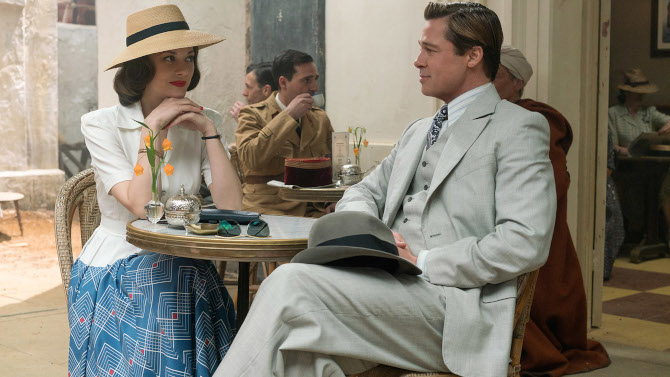
Déjà vu Dalliance
Channeling the mesmeric movies churned out by the studio system back in the 1930s and 40s, Allied (2016), directed by Robert Zemeckis, channels the likes of Morocco, Casablanca, Across the Pacific, Gilda, To Have and Have Not, and numerous others – attempting to find a spark from the classic themes of melodrama, romance, suspense and the epic nature of the annals of the cinematic past, with quite successful results. Set the year Casablanca and Across the Pacific were released – 1942, the story in fact starts in Morocco, with recently parachuted in Canadian spy Max Vatan (Brad Pitt) meeting up with another undercover agent, Marianne Beauséjour (Marion Cotillard), who will be pretending to be his wife.
-
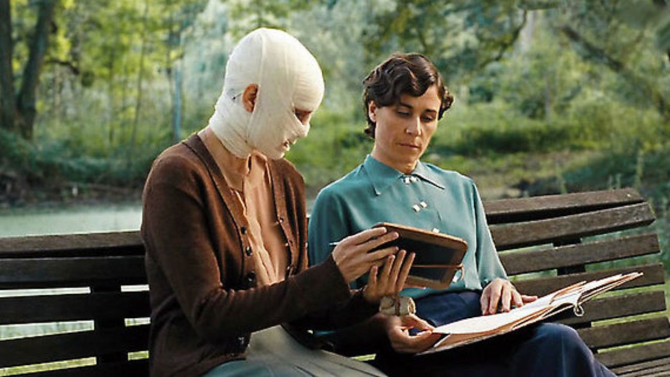
Ashes to Ashes, Dust to Dust
PhoenixJanuary 5, 2021A person with a past erased, no true present, and a future that is very much in jeopardy, the German film Phoenix (2014), written/directed by Christian Petzold and starring Nina Hoss (perhaps one of the best working director/actor teams outside of the United States – this is their sixth of seven movies together thus far), is an intimate historical character study revolving around one of the greatest atrocities in human history. Set just after the conclusion of the Second World War, Nelly Lenz (Hoss) has recently returned from a concentration camp. A singer who was shot through the face in the dying days of the war, she somehow survived, passed over by the workers who thought she had died from the bullet wound.
-
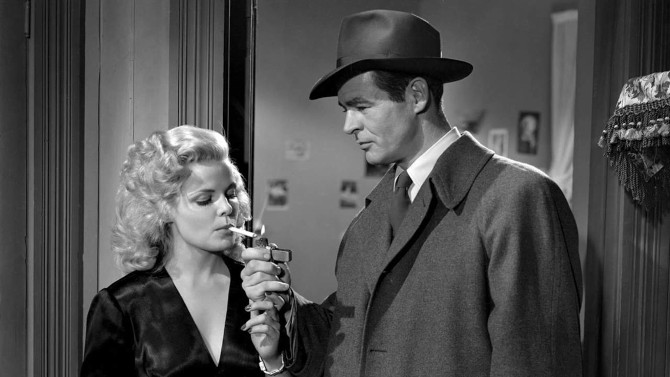
Unchartered Terrain
On Dangerous GroundNovember 16, 2020A film noir that flips the script (transforming into something very different in the second act), Nicholas Ray’s On Dangerous Ground (1951), written by A.I. Bezzerides (Kiss Me Deadly), follows the director’s penchant for looking at tortured, lonely individuals (think In a Lonely Place; Rebel Without a Cause), our main figure initially placed against the backdrop of a busy metropolis. Jim Wilson (Robert Ryan) is a hardened police officer on the beat, a man who is as serious as cyanide, as lonely as the night, as cynical as, well. . . a cop. Surrounded by lowlifes, dangerous dames, and violent criminals, sadly, it is the only thing he has seen for years, twisting his spirit into a near inhuman, Guantanamo Bay-like level of hatred (physical abuse is his first step in getting answers) . . . all this has him closing in on a breakdown.
-
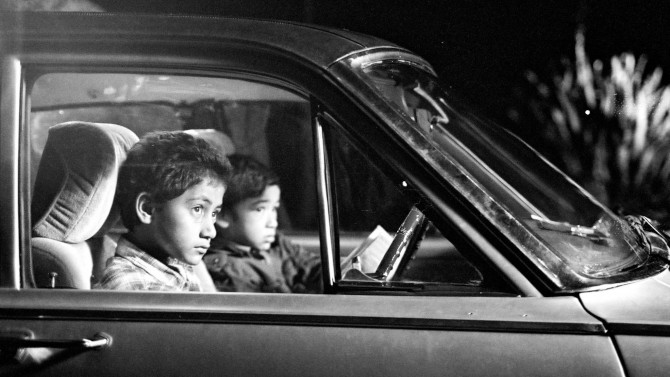
Kids in Cars
Two Cars, One NightSeptember 14, 2020There is no denying that Taika Waititi is one of the hottest directors in Hollywood right now. Just look back to his last four films. What We Do in the Shadows (2014) is a modern horror magic trick, an unexpected mockumentary that introduced many to his abstract and quirky sense of humour. Soon winning more fans with his Sundance darling Hunt for the Wilderpeople (2016), it was yet another one of his features to receive universal acclaim. Jumping into a completely different realm, he took one of the biggest risks seen in the Marvel cinematic universe, somehow transforming Thor from sullen, dark, depressing and somewhat wooden, into one of the funniest post modern adventures imaginable with Ragnarok (2017). Jockeying into yet another unexpected realm, he next became Oscar respected film maker with 2019's Jojo Rabbit (a comedy set in one of the least funny places imaginable – World War Two Germany). A man who can find laughs in even the most unexpected places, it is quite rare to find someone in this modern movie landscape that is willing to take such chances with his career – and it is utterly refreshing. Likely unknown to some, he has actually long been an Oscar-nominated film maker. . . earning a nod all the way back in 2004 for his live action short film, Two Cars, One Night.
-
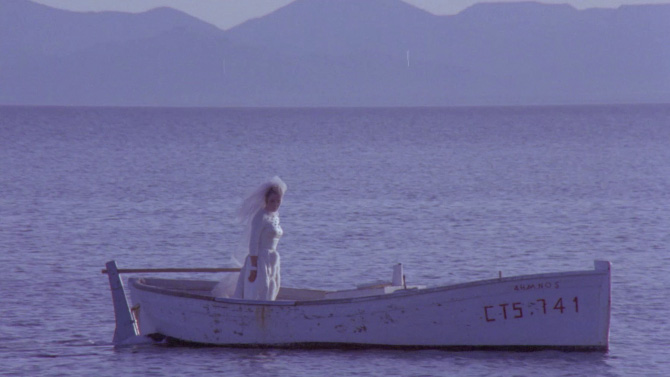
Inlet Outlet
Bahía BlancaAugust 24, 2020It is always an intriguing prospect to watch the one film that doesn’t fit into a genre film maker’s oeuvre. For The Master of Suspense – Alfred Hitchcock, it was the screwball comedy Mr. and Mrs. Smith (circa 1941 – no, he was not alive to direct the Brad Pitt/Angelina Jolie vehicle in 2005), for Martin Scorsese, the master of the crime movie, it has to be the children’s film Hugo, and for Jesús Franco, the creator of stylish exploitation B pictures packed with sex and violence, 1984's Bahía Blanca fits the bill. The master of pumping them out fast, this was Franco’s tenth of ten movies made in 1984. . . a time when the independent industry was losing their avenue with exploitation flicks (and Franco’s famous touch of softcore was being eliminated by cinema being divided into either adult or mainstream), as Hollywood was learning how to create higher budget slasher flicks that blew these little pictures out of the water – meaning that, the writer/director found himself self-producing a lot of his own films (often disappearing or finding their way onto sub-par VHS – like this rarely seen picture).
-
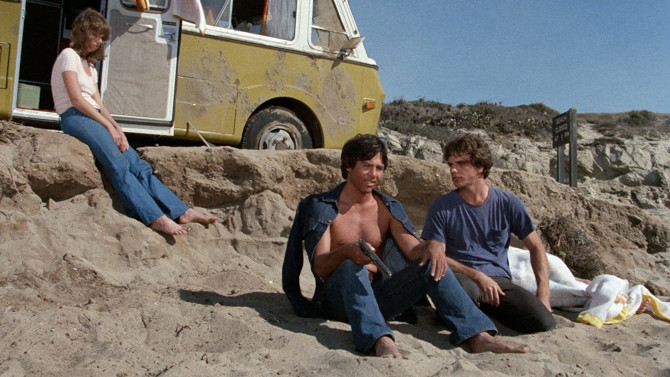
What Could Have Been: Best Friends
August 3, 2020A very Indie film that feeds off of both the buddy film craze of the time and the concluding notes of the Vietnam war, 1975's Best Friends, written by Arnold Somkin and directed by Noel Nosseck, is exactly as it sounds, that is, until it isn’t. Jesse (Richard Hatch) and Pat (Doug Chapin) have been best friends for years. Frick to the other’s Frack, they spend all of their time together. . . going as far as heading off to war when they are of age. Now returning from Vietnam, Jesse has set up a special surprise for his bestie – having both of their fiancées join them for an RV road trip all the way to California.
-
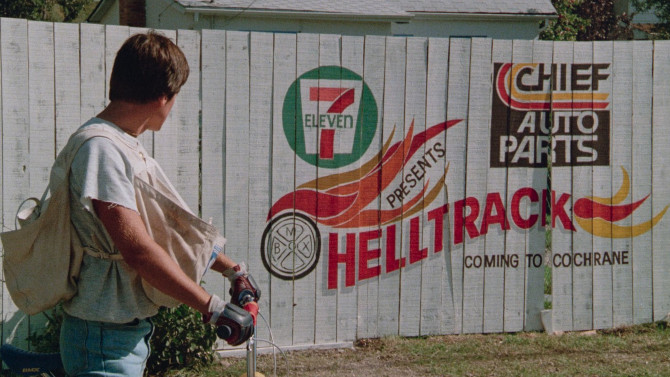
I Want To Ride My Bicycle…
RadJuly 31, 2020I’m still not exactly sure what I’m doing here, but here we go. . . 1986's Rad is one of the films that has the greatest discrepancies between critic and fan ratings – despised by the former, loved by the latter. An unknown to even the most fanatical of film fans, yet also a cult classic adored by its underground supporters, this motion picture, directed by stuntman nonpareil Hal Needham, is like a scientifically concocted adrenaline shot of cheese, kitsch, B movie badness, with a fantastical twist on the 80s. . . and, for some bizarre reason, I kind of liked it. Welcome to the town of Cochrane, a fictional place where the newspaper delivery boys are aided and cheered on by its local citizens (including the garbage men), where the cops love nothing more than playing a motorcycle versus bike version of hide and go seek against the kids in the local wood mill, where everyone’s favourite pastime is called ‘ass sliding’ – no, it’s not as dirty or fun as it sounds, where the dancing looks like a part of a Siegfried & Roy show (and that’s not to mention the sexualized bicycle tango), and each and every person (be it the Shriners on their little clown cars, or its aged population) seems to be absolutely enthralled by BMX biking.
